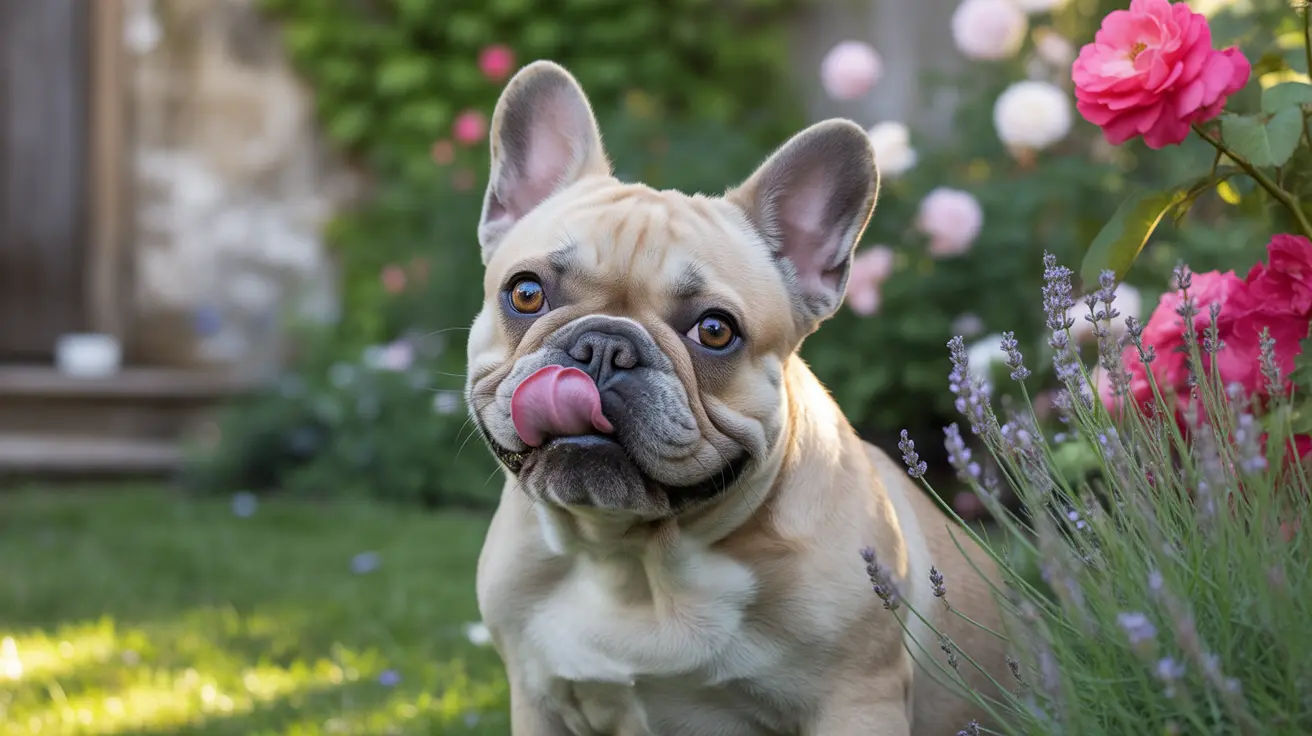If you've noticed your dog repeatedly licking the air, you're not alone. This common canine behavior can range from perfectly normal sensory exploration to a potential sign of underlying health issues. Understanding why dogs lick the air and when to be concerned can help ensure your pet's wellbeing.
In this comprehensive guide, we'll explore the various reasons behind air licking in dogs, help you distinguish between normal and concerning behavior, and provide guidance on when to seek veterinary care.
Natural Reasons for Air Licking Behavior
Dogs possess an extraordinary sense of smell, with approximately 60 times more olfactory receptors than humans. When your dog licks the air, they might be processing interesting scents in their environment using their vomeronasal organ (also known as Jacobson's organ).
This specialized organ helps dogs analyze chemical signals and pheromones, making air licking a natural part of their sensory exploration. You might notice this behavior more frequently when your dog encounters new environments or interesting smells.
Medical Concerns Behind Air Licking
Oral and Dental Issues
Persistent air licking can indicate dental problems or oral discomfort. Issues such as tooth decay, gum disease, or foreign objects stuck in the mouth might cause your dog to lick the air as a response to pain or irritation.
Gastrointestinal Problems
Dogs often lick the air when experiencing digestive issues, including:
- Nausea
- Acid reflux
- Gastritis
- Inflammatory bowel disease
- Potential blockages
Neurological Symptoms
In some cases, air licking might be associated with neurological issues, including focal seizures. If the behavior appears sudden, repetitive, or accompanied by disorientation, consult your veterinarian promptly.
Behavioral and Emotional Triggers
Stress and Anxiety
Dogs may lick the air as a self-soothing mechanism when feeling anxious or stressed. This behavior can release endorphins, helping them calm down in uncomfortable situations.
Pleasure and Enjoyment
Some dogs lick the air during enjoyable experiences, such as being petted or scratched in their favorite spots. This type of air licking is usually harmless and accompanies other signs of happiness.
When to Seek Veterinary Care
Monitor your dog's air licking behavior and seek professional help if you notice:
- Sudden increase in frequency
- Accompanying symptoms like vomiting or lethargy
- Signs of oral pain or discomfort
- Behavioral changes
- Persistent or compulsive licking
Frequently Asked Questions
Why is my dog licking the air frequently and could it indicate a health problem?
Frequent air licking can indicate various issues, from dental problems to gastrointestinal distress. If the behavior is new, persistent, or accompanied by other symptoms, consult your veterinarian for proper diagnosis.
How does air licking help dogs explore scents and their environment?
Dogs use air licking to direct scent particles toward their vomeronasal organ, which helps them analyze chemical signals and pheromones in their environment. This behavior enhances their ability to process and understand their surroundings.
Can dental issues cause my dog to lick the air and what symptoms should I watch for?
Yes, dental problems can cause air licking. Watch for additional signs like bad breath, reluctance to eat, pawing at the mouth, or visible inflammation of the gums.
When should I be concerned about my dog's air licking as a possible sign of anxiety or seizures?
Be concerned if the air licking is repetitive, seems uncontrolled, or occurs alongside disorientation, trembling, or other unusual behaviors. These could indicate anxiety or neurological issues requiring veterinary attention.
How can I tell if my dog is licking the air out of hunger or enjoyment versus a medical issue?
Context is key. Air licking during pleasurable activities or near mealtimes is usually normal. However, if the behavior occurs randomly, frequently, or with other concerning symptoms, it may indicate a medical issue requiring attention.
Conclusion
While air licking can be a normal behavior in dogs, understanding the context and frequency of this action is crucial for maintaining your pet's health. By monitoring the behavior and knowing when to seek professional help, you can ensure your dog receives appropriate care when needed.






